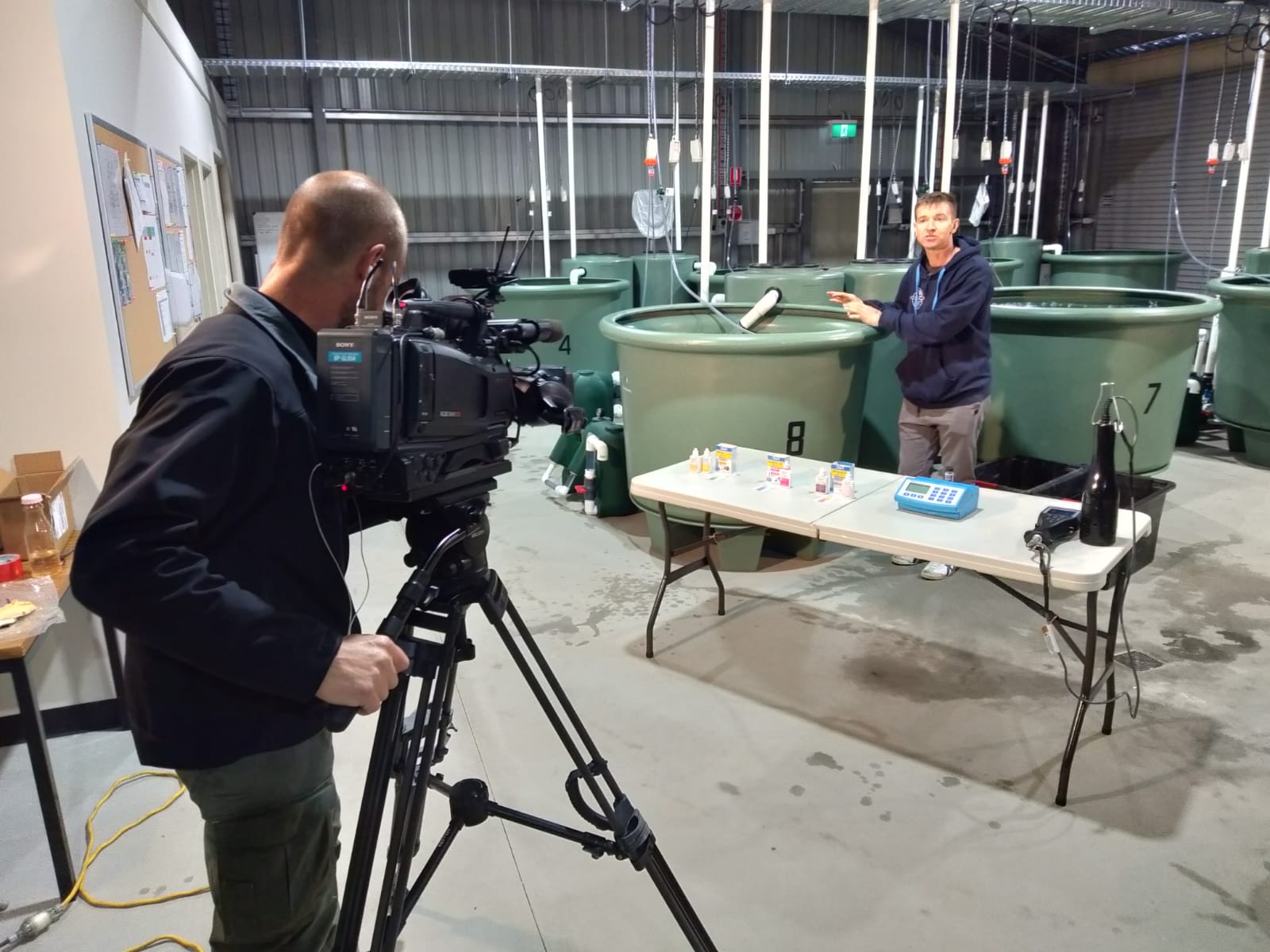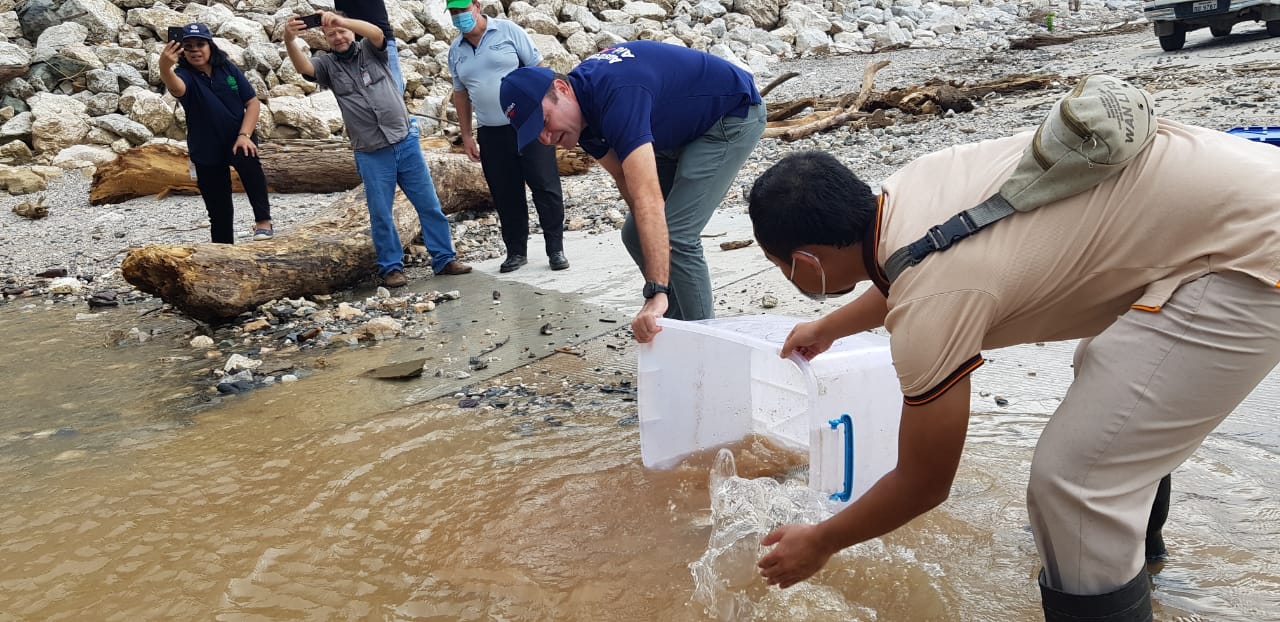

Tagging Fish from Afar
November 11, 2020

The Crawford Fund has supported important training over the years into fish passes in SE Asia, connected with a long term program set up by ACIAR in 2008 on ‘ladders of success‘.
As explained in the write up of our most recent Fish Passages Master Class, there is substantial interest around the world in the effectiveness of ‘fishways’ also known as fish passages. These are channels, like a set of stairs, that enable fish to move more freely where there are obstructions such as weirs and flood control gates. This generates win-win outcomes where healthy fisheries can co-exist with irrigation expansion, particularly in rice growing countries.
We also had a deep dive into this work at our 2019 annual conference from Dr Oudom Phonekhampeng, Vice President of the National University of Laos on Finding the best ‘way’ with fish passes around dams.

Given this association and support, we were very pleased to hear from Dr Lee Baumgartner from the Institute for Land Water and Society, Charles Sturt University who managed our earlier master classes, to help provide a platform for training in-country partners in his ACIAR project.
“As experienced in many Australian agricultural development projects, a major challenge to our work has been transitioning to an online format for some aspects,” said Lee, when he approached the Fund to help with his project’s transition during this difficult Covid-interrupted year.
“A major feature of fish movement projects involves tagging fish in the field, to assess their movement through fish passages. Being unable to travel overseas to perform hand’s on training this year, we prepared a series of instructional videos for our in-country partners to ensure that the work continued.”
The Fund was only too pleased to assist by providing a platform to share the videos and they are now up on YouTube for open access.
Further good news is that our NSW Committee has approved funding to have these English videos translated into three languages – Lao, Vietnamese and Bahasa Indonesian.
While we are pleased to share these English versions, we look forward to bringing you news of the more accessible translated versions soon.




